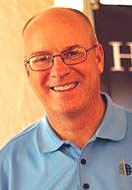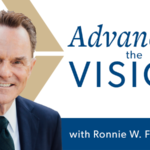
NASHVILLE, Tenn. (BP)–The face of home schooling may not be as pious as most people think, researcher George Barna reports.
Only 49 percent of families who home school are born-again Christians and only 15 percent could be classified as evangelicals, despite the widely held belief that conservative Christians dominate home-schooling groups, according to a recent report from the California-based researcher.
The federal government’s latest report on home schooling places 850,000 students in this category (according to 1999 numbers), although some experts believe the number is twice that.
But it is clear that home schooling is no longer a fringe pursuit; rather, it is a viable alternative to public education that churches can support in a variety of ways.
For example, Marla Hastings, a home-schooling mom at Clearview Baptist Church in Franklin, Tenn., and her children meet with other home-schooling families every Wednesday afternoon at church for cooperative lessons.
“We collectively teach the children Tennessee history and creative evangelism,” Hastings said.
Most home schoolers are not anti-school, said Glen Schultz, director of Christian education for Lifeway Christian Resources of the Southern Baptist Convention, rather, they want to be more involved in their children’s education.
“God’s Word says teach truth, and I think that includes teaching biblical perspectives,” said Schultz, author of “Kingdom Education: God’s Plan for Educating Future Generations” (Broadman & Holman, 1998). “There’s more to education than academics — values are a part of it.
“Most pastors I talk with are seeing a growing number of home schoolers within their churches,” Schultz said. “I think the church has to do more in the field of education.”
Doing more not only includes supporting home schoolers within the church, but also searching for ways to bring unchurched home-schooling families into the church through intentional outreach.
“If home schooling continues to expand at its current pace of growth,” Barna noted, “this alone could significantly reshape family relationships and lifestyles over the course of the next two decades.”
Barna observed that home-schooling adults had “levels of church attendance, church volunteerism, prayer, Sunday school attendance and personal devotional times that were statistically indistinguishable from national norms.” In other words, they’re not dominated by born-again Christians.
Yet the foundation for reaching non-believers is there, Barna said, noting that home-school parents “were more likely to contend that the Bible is totally accurate in all that it teaches; to claim a personal responsibility to share their religious faith with non-believers; to consider their religious faith to be very important in their life; to deny that Jesus Christ committed sins while on earth; and to have an orthodox view of God. Their views were similar to those of other Americans on the reality of Satan (most deny Satan exists) and regarding salvation by grace alone (half believe salvation can be earned through good works).”
In addition, Barna found more ethnic diversity among home schoolers than the stereotype suggests. The “majority of home-school households are non-white, split evenly between Hispanic and black families. Whites, who constitute about two-thirds of American households, represent only 41% of home-school households. Other demographic distinctions include the findings that home-school parents are 39% less likely to be college graduates, 21% more likely to be married and 28% less likely to have experienced a divorce. The household income of home-school families is also 10% below the national average…. Home schooling is most concentrated in the Middle Atlantic, South Atlantic and Pacific regions.”
Recently, Time magazine ran a cover story on home schooling and expressed surprise at the diversity it found — including Catholics, Jews, Muslims, Buddhists and atheists. Although Time’s reporters attempted to be evenhanded, they had difficulty getting past their assumption that the only way to educate good citizens is through public education.
Time cited a 1992 University of Florida study which found that home schoolers were generally more patient and less competitive, less likely to fight and more likely to introduce themselves to others. Yet, the Time reporters added, “In short, they behaved like miniature adults. Which is great, unless you believe that kids should be kids before they are adults.”
Waylan Owens, a home-schooling dad and member of Bay Leaf Baptist Church in Raleigh, N.C., reacted to the Time jab, saying, “First, I am insulted by that comment. Some of the most innocent and fun-loving children I know are home schooled. Second, I am saddened by that comment. The idea that kids need to get into trouble and experiment with drugs and sex, so they can be prepared for adulthood, is a sign of a sick society.”
He added, “This is more about the war against the family than it is about reality. Time’s definition of being a kid is rebellion against authority — i.e., sin.”
Tricia Goyer, a home-schooling mom and member of Easthaven Baptist Church, Kalispell, Mont., said her children are actually getting a more realistic view of what society is like by learning at home.
“We feel that ‘socializing’ should not be defined as spending eight hours a day with other children of the same age in the same classroom,” Goyer said. “The world is not like that. In the world, we interact with people of all different ages from infant to elders — that is true socialization, and we get that type of socialization through home schooling. My kids are involved with babies, toddlers and kids of all ages through home-school activities or simply through friendships. They also interact well with adults. Since they do not have a specific mindset of the type or the age of people they should be friends with, they have friends of all ages.”
–30–




















